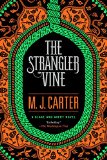Summary | Excerpt | Reviews | Beyond the book | Read-Alikes | Genres & Themes | Author Bio

Charles and Mary Lamb are still living at home with their parents when William Ireland comes into their lives claiming to possess a “lost” Shakespearean play. As word of the find spreads, scholars and actors alike beat a path to Ireland’s door, and soon all of London is eagerly anticipating the opening night of the play.
A tour de force in the tradition of Hawksmoor and Chatterton, Peter Ackroyd’s new novel of deceit and betrayal is a witty reimagining of a great nineteenth-century Shakespeare forgery.
Charles and Mary Lamb, who will achieve lasting fame as the authors of Tales from Shakespeare For Children, are still living at their parents’ home. Charles, an aspiring writer bored stiff by his job as a clerk at the East India Company, enjoys a drink or three too many each night at the local pub. His sister, Mary, is trapped in domesticity, caring for her ailing, dotty father and her maddening mother. The siblings’ enchantment with Shakespeare provides a much-needed escape, and they delight in reading and quoting the great bard. When William Ireland, an ambitious young antiquarian bookseller, comes into their lives claiming to possess a “lost” Shakespearean play, the Lambs can barely contain their excitement. As word of the amazing find spreads, scholars and actors alike beat a path to Ireland’s door, and soon all of London is eagerly anticipating opening night of a star-studded production of the play.
The perfect, lighthearted follow-up to Ackroyd’s magnificent biography of Shakespeare, The Lambs of London transforms the real-life literary hoax into an ingenious, intriguing drama that will keep readers guessing right to the end.
Ackroyd blends fact, fiction and a little bit of mystery in his entertaining new novel following the success of Shakespeare (2005), in which he returns to the territory of literary plagerism that he first explored in Chatterton. The only major frustration is that he plays a little too fast and lose with the facts (for example, he bumps Mary off 43 years earlier than she actually died, and there is no historical evidence that William Ireland and the Lambs were ever in contact, let alone that Mary was romantically infatuated with Ireland). Questions such as these could have been cleared up with the use of an author's note explaining where fact ends and fiction starts but all Ackroyd offers is a single comment stating that what he has written is "not a biography but a work of fiction", in which he has "changed the life of the Lamb family for the sake of the larger narrative". In actual fact, the larger narrative is barely about the Lambs at all - it is as if Ackroyd set out to fictionalize their lives but got carried away with the more entertaining subplot!..continued
Full Review
(196 words)
This review is available to non-members for a limited time. For full access,
become a member today.
(Reviewed by BookBrowse Review Team).
William Henry Ireland was born in London in 1777. His father, Samuel Ireland, was a successful publisher of travelogues and collector of antiquities. At an early age William became a collector of books and while apprenticed to a mortgage lawyer he started to experiment with forgery - forging signatures on genuinely old paper.
In 1794 he claimed to have discovered an old deed with Shakespeare's signature on it - he presented said document to his overjoyed father, and over a period of time proceeded to make more finds relating to Shakespeare. In about 1795, at the tender age of 18, Ireland produced a whole new Shakespeare play, Vortigern and Rowena and sold the rights to the Irish playwright Richard Brinsley Sheridan. In January 1796 his ...
This "beyond the book" feature is available to non-members for a limited time. Join today for full access.

If you liked The Lambs of London, try these:

by Miranda J. Carter
Published 2016
Set in the untamed wilds of nineteenth-century colonial India, a dazzling historical thriller introducing an unforgettable investigative pair.

by Tracy Chevalier
Published 2010
A voyage of discoveries, a meeting of two remarkable women, and an extraordinary time and place enrich bestselling author Tracy Chevalier's enthralling new novel.
Every good journalist has a novel in him - which is an excellent place for it.
Click Here to find out who said this, as well as discovering other famous literary quotes!